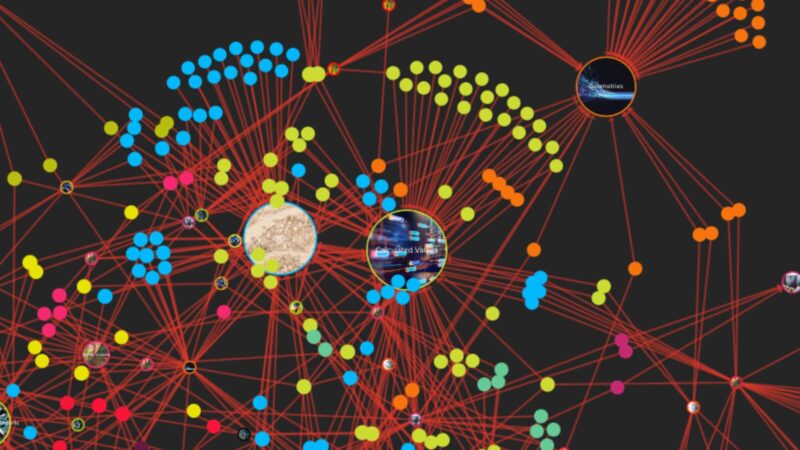While 2024 taught us to look beyond flashy trends, 2025 demands something different – a focus on resilience, adaptability, and purposeful innovation. Let’s dive into these themes and explore how they’re influencing the future of data.
1. Preparing for the Unpredictable
Data disruptions – whether caused by cybersecurity threats, supply chain breakdowns, or system failures are no longer “if” scenarios, but “when” events. As a result, ensuring that our data pipelines are resilient has never been more critical.
We’re seeing a shift towards fault-tolerant workflows that can quickly detect and address issues, minimizing downtime and manual intervention. Rather than relying on static systems that might fail when disruptions occur, tools like FME enable organizations to implement error-handling routines and notifications that automatically reroute processes, recover lost data, or trigger corrective actions.
When combined with high-availability, fault-tolerant environments, these resilient workflows ensure that critical systems remain operational, no matter what challenges arise.
2. Hyper-Personalisation
The era of one-size-fits-all is over. In 2025, hyper-personalisation is taking personalization to unprecedented levels by leveraging real-time, predictive analytics across diverse data types—spatial, behavioural, transactional, and more.
A standout example of this innovation is Spotify’s Wrapped feature. Each year, Spotify delivers users a unique, data-driven recap of their listening habits, combining behavioural insights with aesthetic storytelling. In real time, it integrates streaming trends, mood analysis, and user interactions to create a personal, shareable experience.
FME can be a powerful enabler of hyper-personalisation by enhancing data integration, transformation and delivery for real-time customer experiences.
Imagine an e-commerce platform using FME to personalise product recommendations. FME integrates data from various sources (browsing history, purchase history, social media) and enriches it with external factors like weather trends. It prepares the data for machine learning models and delivers personalised recommendations in real time, enhancing the customer experience while ensuring privacy compliance with regulations like GDPR and CCPA – using techniques like data masking and de-identification to protect sensitive customer information.
By streamlining data workflows and automating key tasks, FME helps businesses create more accurate, timely, and personalised customer experiences.
3. The Carbon Accountability
While there has been plenty of talk over the years, organisations are now acting with greater urgency due to market dynamics, regulatory requirements, and technology advances.
Many OECD countries have strong climate legislation and are increasingly committed to combating climate change through ambitious emissions reduction targets, with many countries enacting legislation to achieve net-zero emissions by mid-century.
This collective drive is supported by renewable energy investments, and the establishment of legally binding carbon budgets and interim goals, as nations seek to align with global climate agreements like the Paris Accord.
Data tools are stepping up to simplify and standardise carbon accounting processes across industries. FME makes it easy to consolidate, and analyse environmental data from multiple sources, enabling businesses to track their carbon footprint and align with global reporting standards.
4. AI Meets Real-World Impact
The hype phase of AI is over. In 2025, the focus shifts toward turning AI capabilities into real-world outcomes. Operationalizing AI requires not just advanced algorithms, but also scalable data pipelines that ensure accuracy and reliability across dynamic datasets. This is where data integration and automation become essential.
Take Tesla, for example. The company has advanced AI from concept to reality by operationalizing its Full Self-Driving (FSD) feature. Tesla’s AI doesn’t just work in isolation—it interacts with vast amounts of real-time data generated by its fleet of vehicles. This integration allows for continuous learning, improving the system’s performance on a global scale.
FME helps organisations facing similar challenges by automating the integration and transformation of diverse datasets, ensuring AI systems have the data they need to perform reliably and scale effectively. With FME, good data fuels better AI outcomes.
5. Dynamic Geospatial Analysis
The demand for real-time, dynamic geospatial analysis is accelerating across industries such as urban planning, disaster management, and logistics. Advancements in GeoAI, Earth Observation (EO), drones, and location intelligence are redefining how businesses leverage geospatial data.
GeoAI combines geospatial data with artificial intelligence to uncover patterns and make precise predictions. This innovation enables the processing of vast real-time datasets with remarkable accuracy, proving especially critical in disaster response scenarios where timely insights save lives and resources.
Meanwhile, the EO sector is undergoing transformation, with the expansion of satellite constellations offering higher-frequency, high-resolution imagery tailored for commercial applications. Drone technology is advancing at a similar pace, with increased BVLOS (Beyond Visual Line of Sight) authorizations unlocking new efficiencies in industrial operations.
As geospatial data evolves, its role in sustainability and ESG (Environmental, Social, and Governance) initiatives is becoming indispensable. Businesses now depend on advanced geospatial analytics to assess climate risks, optimise resource use, and ensure regulatory compliance—driving both operational excellence and environmental accountability.
Data Potential into Progress
As 2025 unfolds, data trends demand more than adaptation – they call for innovation and confidence. FME helps organizations build resilient, agile systems that turn data into results. Whether it’s enabling automated-recovery pipelines, driving sustainability, or realising the potential of AI, FME is your partner in navigating the future of data with purpose and impact.
Learn more about FME at locusglobal.com or email us at [email protected]
More Resources
Blog Post: Rock Legends and Data Rhythms
Register for FME Accelerator: free 90 min intro to FME
Learn more about Locus Plus+



